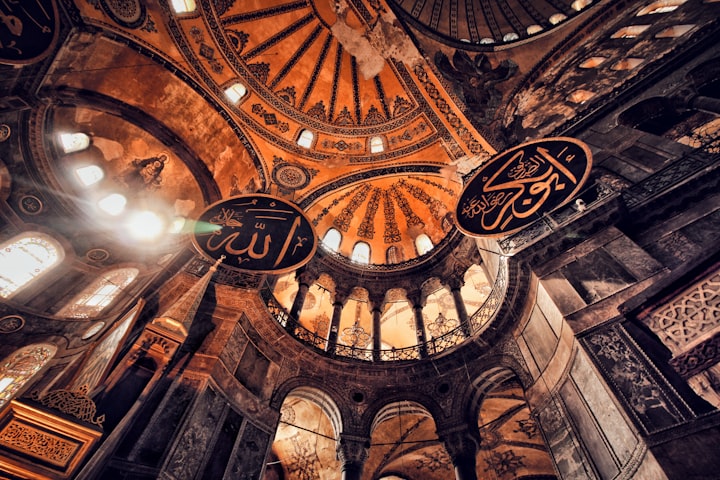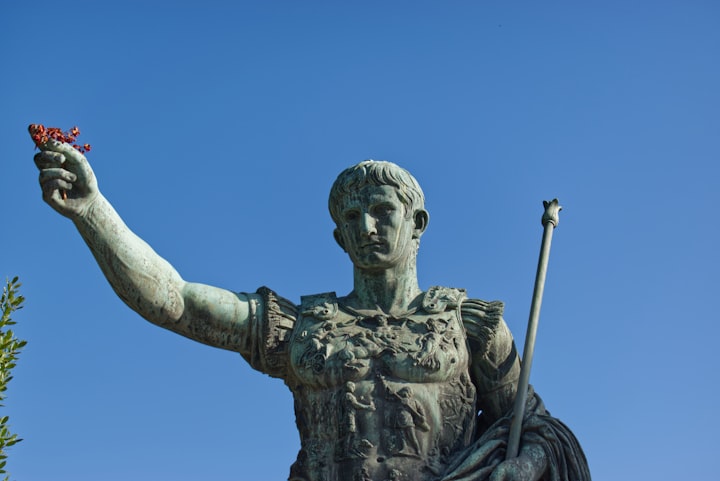The five greatest Empires in Human history
An overview

Various empires have risen and collapsed throughout history, leaving permanent fingerprints on the world's cultural, political, and societal landscapes. These massive entities changed the course of history, leaving legacies that still have an impact on the current world. In this article, we will look at the five biggest empires in history, each of which had a huge impact on humanity's collective memory.
The Roman Empire (27 BC - 476 AD)
The Roman Empire, also known as the "Eternal City," is one of the most recognizable empires in human history. Beginning as a modest city-state, Rome expanded its dominion through military conquests, eventually becoming an empire spanning three continents: Europe, Africa, and Asia. The cultural, legal, and architectural accomplishments of Rome have left lasting legacy.
The Romans mastered the art of government by establishing a republican system, which later evolved into a principate. Their technological prowess is demonstrated by engineering marvels such as aqueducts, highways, and the Colosseum. The Code of Justinian, which embodied Roman law, set the groundwork for modern legal systems.
The Persian Empire (c. 550 BC - 330 BC)
Under the leadership of rulers such as Cyrus the Great and Darius the Great, the Persian Empire spanned huge lands, making it the biggest empire in antiquity. The empire, which stretched from the Indus Valley to Anatolia, was distinguished by religious tolerance, effective administration, and the building of the Royal Road, an early precursor to contemporary motorways.
The Achaemenid Empire, as it was often known, was noted for its superior infrastructure, which included the creation of Persepolis, an opulent city. Furthermore, Cyrus the Great's statement of human rights, known as the Cyrus Cylinder, demonstrates the empire's dedication to recognizing the various cultures under its control.
The British Empire (17th century - mid-20th century)
The British Empire was a world-spanning maritime empire that reached its peak in the nineteenth century. It ruled over areas in Africa, Asia, Oceania, the Americas, and the Caribbean at its peak. The empire's impact spanned well beyond its borders, influencing cultures, economy, and legal systems.
The spread of the English language, the Industrial Revolution, and the establishment of modern parliamentary democracy were all attributed to the British Empire. Although complicated by the exploitative characteristics of colonialism, the legacy of the British Empire includes the construction of educational institutions, infrastructure, and legal systems in many former colonies.
The Mongol Empire (c. 1206 - 1368)
Genghis Khan's Mongol Empire is frequently connected with incredible military conquests and the biggest land empire in history. At its peak, the Mongol Empire spanned from Eastern Europe to Asia, including China, Persia, and Russia. Their conquests were astounding in both speed and scope.
The Pax Mongolica, an era of relative peace that permitted trade and cultural contact between East and West, was one of the empire's most significant accomplishments. The Mongols were also important in facilitating communication along the Silk Road, which resulted in a movement of ideas, technology, and goods between civilizations.
The Ottoman Empire (c. 1299 - 1922)
Osman I established the Ottoman Empire, which became a powerful and long-lasting empire based in Anatolia and eventually expanded into Europe, Asia, and Africa. The empire's longevity can be credited to the devshirme, a sophisticated administrative system that recruited outstanding individuals from varied origins.
The Ottoman Empire reached its pinnacle under the reign of Suleiman the Magnificent, with its capital, Istanbul, being a center of culture, trade, and scholarship. The Kanun, the empire's legal code, affected legal systems in numerous regions, including sections of Europe. The disintegration of the Ottoman Empire following World War I signaled the end of a remarkable era.
The Roman Empire, the Persian Empire, the British Empire, the Mongol Empire, and the Ottoman Empire all left deep and lasting impacts on the world. They all brought something unique to human civilization, from administration and infrastructure to law and culture. While empires build and fall throughout history, the legacy of these great empires continue to affect our world today, providing as a tribute to humanity's ability to create, innovate, and adapt across the years.
About the Creator
John Ammerlane
I love writing about historical figures and events, but also about trivia, geekiness and (weird) sillyness.






Comments
There are no comments for this story
Be the first to respond and start the conversation.